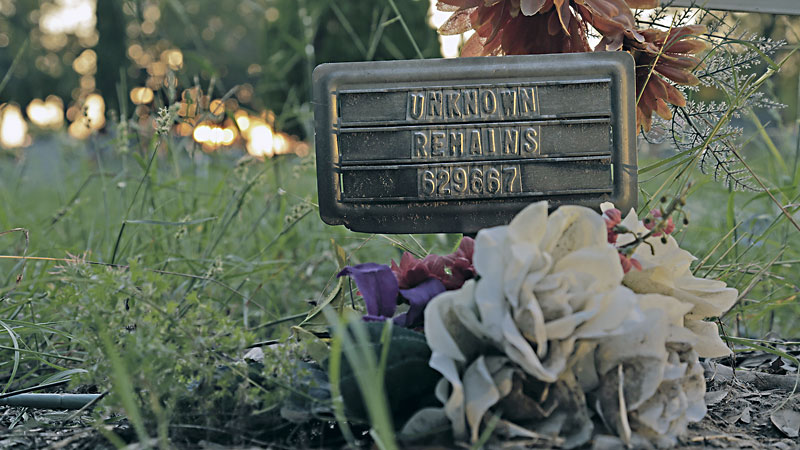Missing in Brooks County Explores a New Location for the Immigration Crisis
Cine Las Americas selection explores death [not] on the border
By Richard Whittaker, Fri., June 4, 2021
There are bodies on the ground in Brooks County. Since 1994, an estimated 20,000 undocumented immigrants have died crossing the U.S./Mexico border, and many have been lost in the arid scrubland of the parched South Texas rural community, which itself has an estimated population of under 8,000. They were killed by exhaustion, heat stroke, and dehydration, their bodies often not found for days, weeks, months, or sometimes ever. Yet this isn't the border. What they died evading is the immigration checkpoint in Falfurrias, a U.S. Customs and Border Patrol facility 70 miles north of the Rio Grande on I-281. "It is nowhere near the border," said documentarian Jeff Bemiss, who noted that there are over 100 such internal stops in the U.S., and two-thirds of all Americans live in a checkpoint zone. Their existence, he said, "is the result of a relatively obscure 1970s Supreme Court decision that has had all kinds of unintended consequences, including a lot of deaths."
This interior body count is overshadowed by the border debate but is very real to the people of Brooks County and made apparent in the opening of Bemiss' new film, Missing in Brooks County, which streams as part of the upcoming Cine Las Americas International Film Festival (June 9-13). The filmmakers are by the side of South Texas Human Rights Center organizer Eddie Canales as he locates a corpse in the desert, and the camera does not shy away.
It's a shocking moment. Bemiss recalled discussing that shot with his fellow director Lisa Molomot and they decided it needed to be included to show what Canales and others in Brooks see all too often. However, as a measure of respect, they contacted the Mexican government to confirm that the remains were unidentifiable. "We didn't want sensitivity to mean silence," he said. "We felt that we should show it because people should understand, viscerally, what's happening. ... That scene is grounded in [Caneles'] experience and his point of view."
It's not just Canales. Bemiss and Molomot spent months in Brooks, giving voice to the voiceless through the living, no matter what side of the debate they are on. The family members left in limbo; the Border Patrol agent who hopes to find migrants alive; the rancher whose land has become an open-air cemetery; and the anthropologist working to identify bodies and end the suffering of those families left without closure.
Many immigration documentaries take a broad view of the issue or take a side, but Bemiss and Molomot didn't want to do either. Instead, they designed Missing in Brooks County to tell a very specific story about one policy and its impact on a community. The pair stumbled across it when they heard an episode of NPR's Story Corps series about Baylor University associate professor of anthropology Lori Baker, who has spent years volunteering her time and expertise to ID bodies. "We were both really moved by this story," said Bemiss, "so we reached out to Lori, and she invited us out to Waco, and she took us down to Falfurrias." Like most people, the filmmakers expected to see the border, but Brooks set them straight: "She said, 'Oh, no, that's 70, 80 miles away. Brooks County isn't even a border county, but it's where the problem is."
That was what changed their filming plans from a short profile of Baker into a deeper look at the lives devastated by this quiet massacre. It's how Missing in Brooks County became ultimately about two policy issues: the decision to have a Border Patrol station nowhere near the border, and the unwillingness to identify the dead and return their remains to their families. On that last issue, at least, there is a little motion. Bemiss noted that in January, the Missing Persons and Unidentified Remains Act was signed into law: authored by Texas Senator John Cornyn and then-senator for California Kamala Harris, it contained mechanisms to both reduce the number of deaths and to improve identification of the deceased. Bemiss described that as a start, based on humanizing the issue. He said, "If lawmakers could meet the families of the missing, they would feel differently about the policies that they're creating."
Missing in Brooks County screens as part of this year’s virtual Cine Las Americas International Film Festival, running June 9-13. Festival passes are $40, and individual tickets are $8. Details and info at cinelasamericas.org.











